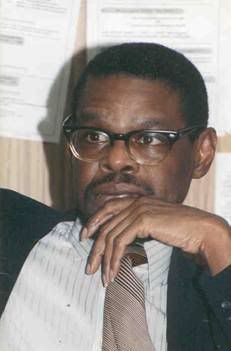Call it a SMASH
By Eddie Griffin
An
NBC TV script just above its famed peacock logo reads:
Stars are not born. They are made. And so the television network opened to door for new, young stars through its "SMASH: Make A Musical" audition.
NBC’s ‘SMASH’ MAKE A MUSICAL is currently building 20 new musical theater programs in underserved schools with limited arts programming across the nation. The program is administered by
iTheatrics, whose mission is to provide schools with the resources, skills and materials to present musical theatric productions with and for young people. The program guides school teachers step-by-step through creating stand-alone arts programs and aims to engage as many students as possible in all aspects and areas of the arts.
Opportunity is the best motivator for students. To have to opportunity to be what you want to be, to reach for the stars, nothing could be more exhilarating.
Arts students at Tremble Tech High School got stars in their eyes and dreams as big as Texas.
Here is an excerpt of what iTheatrics Senor Education Associate Cindy Ripley found at Trimble Tech:
“NBC’s ‘Smash’: Make A Musical”
School #10: Trimble Tech High School
Fort Worth, TX
Reported by: Cindy Ripley, iTheatrics Senior Education Associate, Resident Master Teacher
I always knew Texas was famous for doing things in a big way. No doubt. Even walking to the baggage claim in DFW airport, the distance was immense. But I had no idea that Trimble Tech High School would embody this notion of “big” and fill it with possibility.
The giant vocational high school, made up of 2,000 students, pulls from the entire district of Fort Worth. It is a place where career-minded kids can choose special majors and find specificity in their educational goals. This is a school that offers courses in computer animation, culinary arts, plumbing, cosmetology, health science, carpentry, auto body repair as well as print shop, and hospital administration to name a few. Many of these programs even grant certifications into the workforce. Athletics are very strong as is the school’s band program. Now, I invite you to sit back and think about this. How many tech schools have you heard of that are diligently trying to build an arts program? A gold star goes to this “NBC’s ‘Smash’: Make A Musical” school.
Read the complete story at:
http://www.juniortheaterproject.org/nbcs-smash-make-a-musical-school-10-trimble-tech-high-school-fort-worth/
COMMENTARY by Eddie Griffin
I remember the time when Trimble Tech High School was one of those inner city, low-performing schools that most people would have given up on. Its vocational programs were antiquated and neglected. The district wanted to cut its athletic program, and its band program was criticized in a local newspaper editorial. This was where my son and daughter attended in the mid-1990s.
All but forgotten now is the day when my kids, and all the other Tech students walked out of class and trekked five miles across the bridge to Farrington Field’s football stadium, in protest of the school district’s proposed cutting their athletic program. Leading the parade was
Windell Middlebrooks who, today, is a Hollywood actor staring in ABC medical drama “Body of Proof”, and most renouned for his role as the Miller High Life truck driver.
During this time, Eddie Griffin became Trimble Tech PTA president and advocate to save the students’ athletic and bring parity to the school in educational resources.
The advocacy began with giving parents a stakeholder’s role in the schools, through the S.B. 1 Education bill in 1995, which created, for the first time, Site-Based Management Teams, giving parents a part in the decision-making process at their individual schools. Instead of being treated like gadflies and pests, parents gained a measure of respect and standing in the schools.
Building upon our newly found power, we developed a long-range improvement plan for the school, in order to upgrade long neglected technological and vocational resources. The plan would introduce computers into the inner city classroom for the first time. Yet, it was the key component of the plan that teachers scuffed at the most.
We “fired everybody”, replaced the principal, and forced everybody to re-apply for tenureship and forced students apply for placement in one of the newly rennovated technical or vocational program. The results: Two years later, the school scored “exemplary”, the highest level of academic achievement in the state, a status it held for two consecutive years.
The end of this long evolutionary process is what the writer, Cindy Ripley, observed above.
The actor, Windell Middlebrooks, is still considered a Tremble Tech native son, and a role model for other aspiring stars.
When you create an educational environment conducive for allowing students to reach their greatest potential, a star is born.



